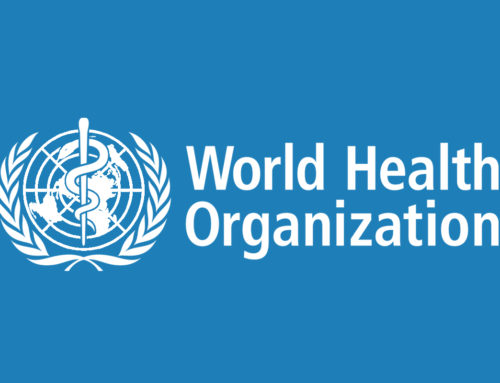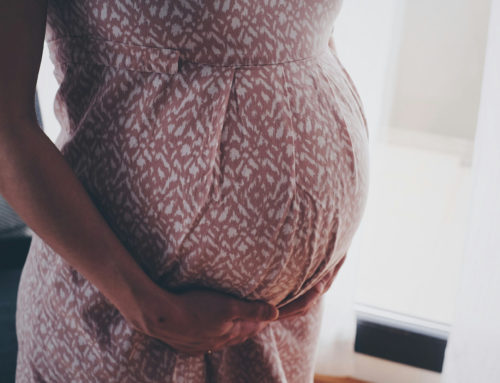Group of abortion rights cases against Poland declared inadmissible
In its decision in the case of A.M. and Others v. Poland (application no. 4188/21, 4957/21, 5014/21, 5523/21, 5876/21, 6114/21, 6217/21, 8857/21) the European Court of Human Rights has unanimously declared the applications inadmissible. The decision is final. The applications concerned restrictions on abortion rights in Poland.
The applicants alleged in particular that, following amendments to the legislative framework in 2020, they have effectively been banned from having access to legal abortion in the case of foetal abnormalities. The Court found that the applicants had failed to provide any convincing medical evidence proving that they had been at real risk of being directly affected by the 2020 legislative amendments. Nor had they produced any documents relating to their personal circumstances, making it impossible to assess their individual situations.
The consequences for the applicants of the legislative amendments were thus too remote and abstract for them to arguably claim to be “victims” within the meaning of the European Convention of Human Rights. There are around 1,000 applications concerning restrictions on abortion rights due to foetal abnormalities in Poland, received by the Court since 2021, which are still ongoing. A legal summary of this case will be available in the Court’s database HUDOC (link).
Principal facts The applicants are eight Polish nationals who were born between 1980 and 1993. On 22 June 2017 a group of 104 parliamentarians applied to the Constitutional Court to have sections 4a(1)2 and 4a(2) of the Law on family planning, protection of the human foetus and conditions permitting pregnancy termination (Ustawa o planowaniu rodziny, ochronie płodu ludzkiego i warunkach dopuszczalności przerywania ciąży – “the 1993 Act”) declared unconstitutional (case no. K 13/17). Those provisions relate to legal abortion due to foetal abnormalities. The proceedings were discontinued. On 19 November 2019 a similar application was lodged by a group of parliamentarians (case no. K 1/20).
On 22 October 2020 the Constitutional Court held that sections 4a(1)2 and 4a(2) of the 1993 Act were incompatible with the Constitution. That judgment came into force on 27 January 2021. Widespread, large-scale street protests followed. Against this background, the applicants lodged their applications with the European Court using a pre-filled application form which had been posted on the Internet by the Polish non-governmental organisation FEDERA (the Federation for Women and Family Planning), together with legal opinions prepared by the Commissioner for Human Rights of the Republic of Poland, the Helsinki Foundation for Human Rights and the Polish Bar Council. They each added a few sentences concerning their personal circumstances. Two of the applicants alleged that they had medical conditions causing a higher risk of foetal abnormalities, while two others were pregnant at the time of lodging their applications and worried about complications.
The remaining applicants were either planning pregnancies or stopped trying to become pregnant following the Constitutional Court judgment because they were afraid that they would not receive adequate medical care from the State if the foetus was found to have a serious abnormality. 2 Complaints, procedure and composition of the Court The applications were lodged with the European Court of Human Rights on various dates in 2021. Relying on Article 8 (effectively right to respect for private and family life), the applicants complained in particular that, as women of child-bearing age, they were potential victims of a violation of their rights as the amendments to the law now forced them to carry pregnancies to term even in the case of foetal abnormality.
The Council of Europe’s Commissioner for Human Rights submitted written comments to the Court, as did a number of organisations, UN experts and legal scholars which had been granted leave to intervene in the proceedings as third parties. The decision was given by a Chamber of seven judges, composed as follows: Marko Bošnjak (Slovenia), President, Krzysztof Wojtyczek (Poland), Alena Poláčková (Slovakia), Ivana Jelić (Montenegro), Gilberto Felici (San Marino), Erik Wennerström (Sweden), Raffaele Sabato (Italy), and also Renata Degener, Section Registrar.
Decision of the Court The Court reiterated that it was only in highly exceptional circumstances that an applicant could claim to be a victim of a violation of the Convention owing to the risk of a future violation. It went on to note that in order for a woman of child-bearing age in Poland to be able to claim that she was a victim of the restrictions on access to therapeutic abortion, she would have to produce reasonable and convincing evidence of the likelihood that a violation affecting her personally would occur. Mere suspicion or conjecture was insufficient. However, the applicants had failed to provide any convincing evidence that they had been at real risk of being directly affected by the amendments introduced by the Constitutional Court’s judgment of 22 October 2020. In particular, they had not provided any medical evidence or evidence as to their potentially running a higher risk of foetal abnormalities. Nor had they produced any documents relating to their personal circumstances, making it impossible to assess their individual situations.
Furthermore, with regard to the applicants’ arguments that their life or health might be endangered in case of health problems during a future pregnancy or that they would not be able to receive adequate medical care, the Court observed that section 4a(1)1 of the 1993 Act, authorising abortion by law if the pregnancy endangered the mother’s life or health, was still in force. The restrictions resulting from the amendments to the relevant legislation could thus only have consequences for the applicants which were hypothetical, and were too remote and abstract for them to arguably claim to be “victims” within the meaning of Article 34. It followed that the applications had to be declared inadmissible in their entirety.
The decision is available only in English. This press release is a document produced by the Registry. It does not bind the Court. Decisions, judgments and further information about the Court can be found on www.echr.coe.int.
To receive 3 the Court’s press releases, please subscribe here: www.echr.coe.int/RSS/en or follow us on Twitter @ECHR_CEDH. Press contacts echrpress@echr.coe.int | tel: +33 3 90 21 42 08.
We would encourage journalists to send their enquiries via email. Tracey Turner-Tretz (tel.: + 33 3 88 41 35 30) Denis Lambert (tel.: + 33 3 90 21 41 09) Inci Ertekin (tel.: + 33 3 90 21 55 30) Neil Connolly (tel.: + 33 3 90 21 48 05) Jane Swift (tel.: + 33 3 88 41 29 04).
The European Court of Human Rights was set up in Strasbourg by the Council of Europe member States in 1959 to deal with alleged violations of the 1950 European Convention on Human Rights.










